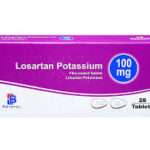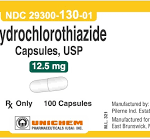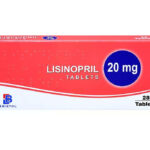Alyacen 1/35: Common Side Effects You Should Know

Alyacen 1/35 is a combination birth control pill containing the female hormones Ethinyl estradiol and norethindrone. These hormones prevent ovulation (the release of an egg from an ovary). This medication also causes changes in your cervical mucus and uterine lining, making it harder for sperm to reach the uterus and harder for a fertilized egg to attach to the uterus.
Alyacen 1/35 is used as contraception to prevent pregnancy. This medicine is also used to treat moderate acne in women who are at least 15 years old and have started having menstrual periods, and who wish to use birth control pills. There are many other brands of ethinyl estradiol and norethindrone and the drug may also be used for purposes not listed in this medication guide.
How to use Alyacen 1/35
Read the Patient Information Leaflet provided by your pharmacist before you start using this product and each time you get a refill. The leaflet contains very important information on when to take your pills and what to do if you miss a dose. If you have any questions, ask your doctor or pharmacist.
Take this medication by mouth as directed by your doctor. Pick a time of day that is easy for you to remember, and take your pill at the same time each day.
It is very important to continue taking this medication exactly as prescribed by your doctor. With certain brands of birth control pills, the amount of estrogen and progestin in each active tablet will vary at different times in the cycle. Therefore, it is very important that you follow the package instructions to find the first tablet, start with the first tablet in the pack, and take them in the correct order. Do not skip any doses. Pregnancy is more likely if you miss pills, start a new pack late, or take your pill at a different time of the day than usual.
What are the side effects of Alyacen 1/35?
Alycen 1/35 can cause the following side effects:
- Nausea
- Vomiting
- Headache
- Bloating
- Breast tenderness
- Swelling of the ankles/feet (fluid retention), or weight change may occur.
- Vaginal bleeding between periods (spotting) or missed/irregular periods may occur, especially during the first few months of use.
Alyacen 1/35 Safety Information
Do not use birth control pills if you are pregnant or if you have recently had a baby.
You should not use birth control pills if you have: uncontrolled high blood pressure, heart disease, coronary artery disease, circulation problems (especially with diabetes), undiagnosed vaginal bleeding, liver disease or liver cancer, severe migraine headaches, if you also take certain hepatitis C medication, if you will have major surgery, if you smoke and are over 35, or if you have ever had a heart attack, a stroke, a blood clot, jaundice caused by pregnancy or birth control pills, or cancer of the breast, uterus/cervix, or vagina.
Taking birth control pills can increase your risk of blood clots, stroke, or heart attack.
Smoking can greatly increase your risk of blood clots, stroke, or heart attack. You should not take this medicine if you smoke and are over 35 years old.





